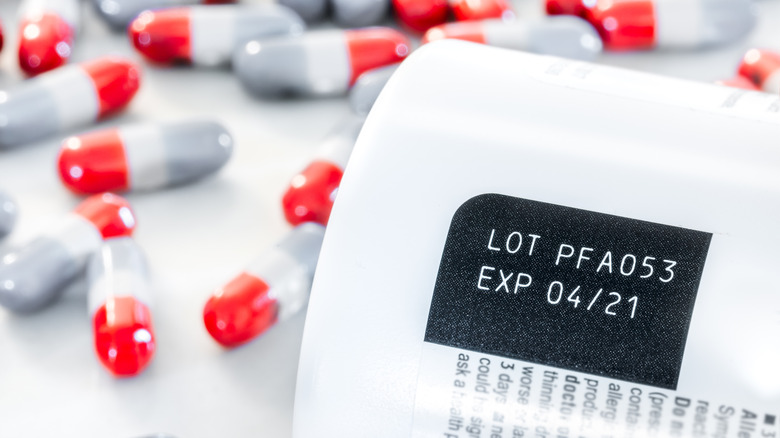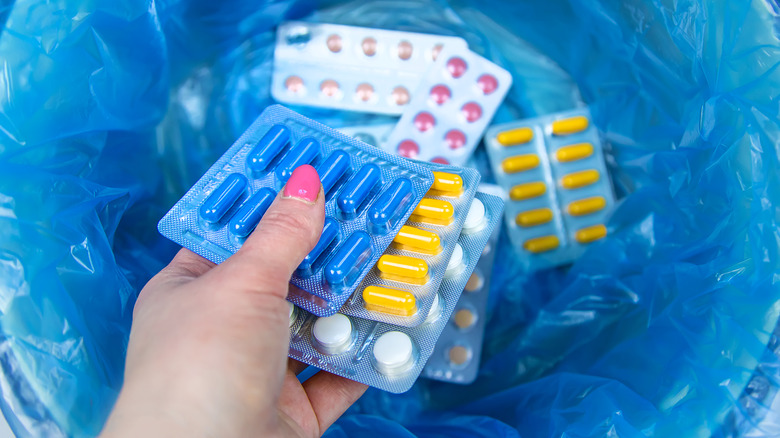What Happens If You Take Expired Medicine?
Just like most food items, medications also have a shelf life. But what exactly does that mysterious "best if used by" label on consumer products mean? Essentially, the month, day, or year printed on the product serves as a cut-off date for when items — particularly food — are considered safe for consumption. This is particularly important for items most susceptible to bacterial growth (via Encyclopedia of Food and Health).
Just as eating expired foods can increase the chances for foodborne illness, consuming medicine beyond its expiration date can also potentially have negative effects on our health. According to the U.S. Food & Drug Administration (FDA), changes take place in the chemical makeup of medications over time, including the progressive deterioration of their effectiveness. Medicines can become contaminated with bacteria after they've expired, and this leaves us susceptible to infections, some of which may be unresponsive to antibiotic treatment.
There is no way to know for sure whether or not your particular medications will have negative effects on your health, but overall, it's better to be safe than sorry. Ideally, you should restock your medicine cabinet with fresh over-the-counter or prescribed medications once they've passed their expiration date — but how can we dispose of our old medications safely?
How to properly dispose of expired medicine
While it may seem like a quick fix to do away with old medications down the drain, the U.S. Environmental Protection Agency (EPA) warns against doing so. Medicine flushed down the toilet or emptied into drains can make its way into our drinking water. Instead, reach out to your city's waste disposal department and see if they offer a drug take-back service. On certain collection days, these programs will accept old prescriptions and over-the-counter meds for safe disposal by professionals.
If a take-back service isn't offered in your area, individuals can utilize an alternate strategy to dispose of their expired medications properly on their own. The EPA suggests emptying medicine into a plastic container, combining it with another dirty item such as cat litter, leftover coffee grounds, or dirt prior to throwing it in the trash. Be sure to black out any identifying information on prescription bottles before doing so. By properly disposing of our medicine, we reduce the chances of potentially dangerous accidents, such as overconsumption by kids, adolescents, or pets.


